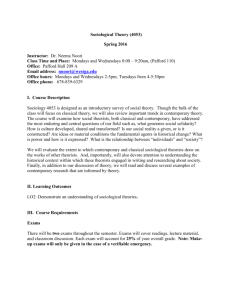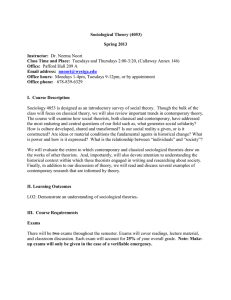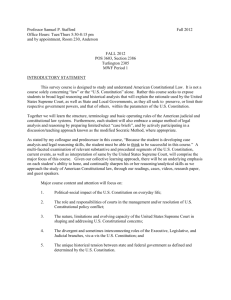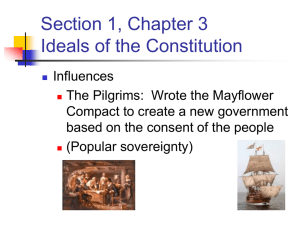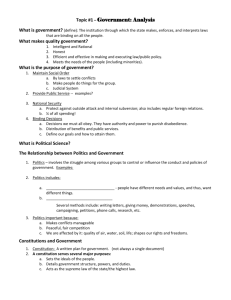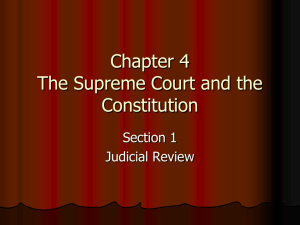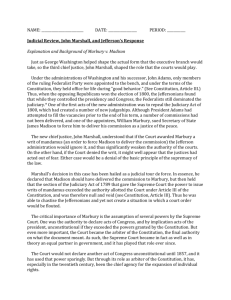The Dan O`Hanlon Essay Competition
advertisement
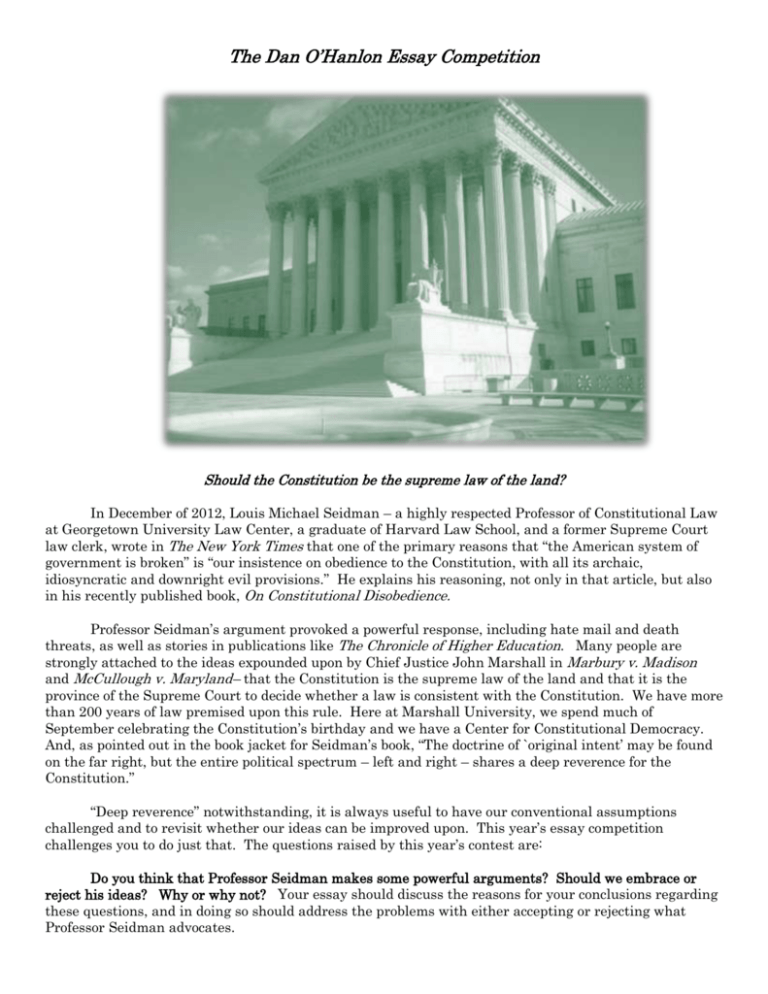
The Dan O’Hanlon Essay Competition Should the Constitution be the supreme law of the land? In December of 2012, Louis Michael Seidman – a highly respected Professor of Constitutional Law at Georgetown University Law Center, a graduate of Harvard Law School, and a former Supreme Court law clerk, wrote in The New York Times that one of the primary reasons that “the American system of government is broken” is “our insistence on obedience to the Constitution, with all its archaic, idiosyncratic and downright evil provisions.” He explains his reasoning, not only in that article, but also in his recently published book, On Constitutional Disobedience. Professor Seidman’s argument provoked a powerful response, including hate mail and death threats, as well as stories in publications like The Chronicle of Higher Education. Many people are strongly attached to the ideas expounded upon by Chief Justice John Marshall in Marbury v. Madison and McCullough v. Maryland– that the Constitution is the supreme law of the land and that it is the province of the Supreme Court to decide whether a law is consistent with the Constitution. We have more than 200 years of law premised upon this rule. Here at Marshall University, we spend much of September celebrating the Constitution’s birthday and we have a Center for Constitutional Democracy. And, as pointed out in the book jacket for Seidman’s book, “The doctrine of `original intent’ may be found on the far right, but the entire political spectrum – left and right – shares a deep reverence for the Constitution.” “Deep reverence” notwithstanding, it is always useful to have our conventional assumptions challenged and to revisit whether our ideas can be improved upon. This year’s essay competition challenges you to do just that. The questions raised by this year’s contest are: Do you think that Professor Seidman makes some powerful arguments? Should we embrace or reject his ideas? Why or why not? Your essay should discuss the reasons for your conclusions regarding these questions, and in doing so should address the problems with either accepting or rejecting what Professor Seidman advocates. Background Material: It would be useful to begin by reading Professor Seidman’s book, which has been described as “short, but profound.” Copies of his book will be placed on reserve at the Reference Desk in Drinko Library. The book is: Seidman, Louis Michael, On Constitutional Disobedience, (Oxford University Press, 2012). You should also read Professor Seidman’s Op-Ed piece published by The New York Times, which can be found by going to this link [use CTRL, left click], http://www.nytimes.com/2012/12/31/opinion/lets-give-up-on-the-constitution.html?pagewanted=all&_r=0, and the article about his book in the Chronicle of Higher Education, which can be found by going to this link [use CTRL, left click], http://chronicle.com/article/The-Constitution-Who-Needs/136147/?cid=at&um_source=a. In addition, you might wish to read some work by other scholars, including past and present Justices of the United States Supreme Court, discussing their views of how the Constitution can (and does) work effectively in our legal system. Some suggested readings of this kind can be found in the following book, copies of which will also be placed on reserve at the Reference Desk in Drinko Library: Judges on Judging: Views from the Bench (3d ed., CQ Press, 2009)(O’Brien, David M., ed.). In particular, you might want to review Judges on Judging’s Chapter 21, by Justice Scalia, Chapter 22, by Justice Marshall, Chapter 23, by Justice Brennan, and Chapter 25, by Justice Breyer. Of course, you can do additional research to support your arguments. Please be sure that all of your research is properly cited. Rules and Prizes This contest is open to any student who will be enrolled at Marshall University in September of 2013. A suggested length for a standard academic essay is 10-15 pages, but there is no required length or page limitation. Winning entries should demonstrate a thorough understanding of Professor Seidman’s work. All entries should be typewritten and submitted on standard-size 8.5 x 11 inch paper. You may mail or deliver them to the address below. Deadline for submission for the 2013 contest is July 30, 2013. First Prize ~ $1,500 Second Prize ~ $750 The winners will be recognized in a special awards ceremony dedicated to the Essay Competition as part of the celebration of Constitution Week in September. Submit entries to: Patricia Proctor, Director Simon Perry Center for Constitutional Democracy Marshall University, Old Main Room 230L One John Marshall Drive Huntington, WV 25755
